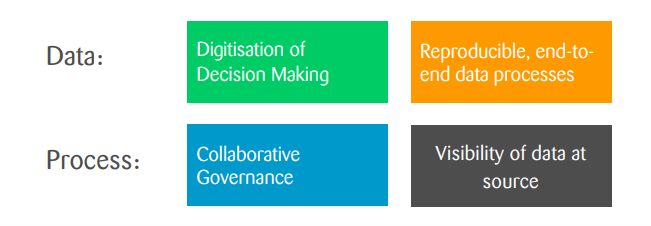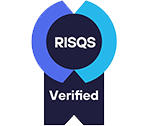Supporting Zuhlke, we conducted a 5-week discovery process, including interviews, analysis and onsite development to help answer some of the key questions concerning capital data reporting.
Rail infrastructure investment decisions and governance require timely, validated data and insight in near real-time. There is a wealth of data available within the partnership organisations of Network Rail and the Department of Transport. These cover the anticipated cost, milestones, minimum viable cost, financial profiling, actions taken to drive down cost and time, change controls, policy metrics (e.g., levelling-up/deprivation), regional metrics, balance scorecard metrics.
Methodology:
- Understand the data landscape:
- what data is there, where is it, data characteristics (e.g., is it raw data, manipulated, aggregated, format, timeliness, etc)?
- User needs: what do people need the data for now and in the future?
- What are people doing/need to do with data (e.g. produce, collect, manipulate, aggregate, receive data)?
- Understand systems/technology:
- the technology used to collect/store/transfer data and constraints.
- Produce (priority only) conceptual and logical data journey maps, focusing on mapping “to-be” states.
- Characterise data and metadata quality (“as-is” and “to-be”) (e.g. logical and business conformance, consistency of schema).
- Learn human and machine data journey connectivity touch-points (learning when human UIs and machine APIs (and other exchange types) are required).
- Research relationships between data to learn data architecture requirements (identify data spines, learn data modelling needs, understand data standard options).
- Test approaches to the construction of a data framework that demonstrates the art of the possible.
- Explore data capabilities against user needs.
- Run workshops to identify capabilities from the datasets and form a potential merged real-time datastore.
- Rapidly explore strategies for a ‘single source of truth’/near real-time datastore.
- Prioritise data capabilities and use cases to determine high-value objectives.
Outcomes:
Our key findings resulted in improvement projects for the following strategic aims:

Our client commented on the following key benefits delivered by Fishbone as the independent Subject Matter Expert for transportation:
- Direct knowledge of the transportation industry and railway operations.
- Strong stakeholder management and the ability to work with multiple teams.
- Ability to simplify and visualise complex data and processes.


